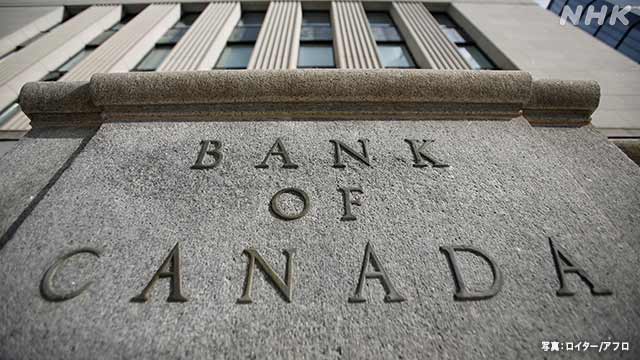The Bank of Canada has decided to raise the policy rate by 0.5% to curb record inflation associated with soaring energy and raw material prices.
The rate hike is the largest in about 22 years, and there are a series of moves to accelerate monetary tightening among the world's major central banks.
The Bank of Canada, the central bank of Canada, decided on the 13th to raise the policy interest rate by 0.5% to 1%.
The rate hike has been held twice in a row since the March meeting, and the 0.5% rate hike is the largest in about 22 years since May 2000.
In addition, we have decided to reduce the amount of government bonds we have purchased through the easing measures so far and to reduce our assets.
In Canada, the consumer price index for February rose 5.7% from the same month of the previous year, the highest in about 30 years.
In a statement, the Bank of Canada said in a statement that Russia's invasion of Ukraine would have an impact on the economy, "rising oil, natural gas and other commodity prices are accelerating global inflation," and is poised to rush to curb inflation. Shown.
Among the world's major central banks, the Fed in the United States has shown the possibility of raising interest rates by 0.5% at its May meeting, and the Bank of England in the United Kingdom is also raising interest rates. There are a series of movements to accelerate tightening.

